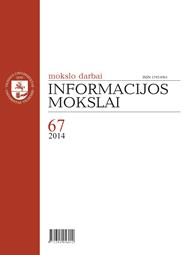Žmogiškųjų išteklių tarnybos žinių ekonomikos iššūkių kontekste
HUMAN RESOURCE MANAGEMENT DEPARTMENTS IN THE CONTEXT OF THE KNOWLEDGE ECONOMY CHALLENGES
Author(s): Albinas Marčinskas, Rima Česynienė, Asta StankevičienėSubject(s): Economy
Published by: Vilniaus Universiteto Leidykla
Summary/Abstract: The interest to the relationship between knowledge economy and human resource management (HRM) has increased over the recent years. In terms of the HRM functions, the rise of knowledge economy has had a major impact, with a considerable shift from HRM as a bureaucratic “personnel management” operation to the development of discrete HRM functions and roles. HR managers have a real possibility to become the highly valued business partners they always wanted to be. Knowledge economy has an impact on all traditional HR department functions (for example, traditional recruitment and selection practices can block knowledge sharing among the groups or departments in firms organised according to the functional principle) and leads to completely new activities (strategic HRM, change and transformation management, knowledge management, development of leadership skills, etc.). According to experts, in the knowledge economy the role of the HRM department needs to be expanded both within and outside the organisation. The purpose of the study was to explore which specific areas of HRM require major changes. The authors have modified the Gloet model and applied it in the research. The model consits of four areas which are crucial in supporting knowledge creation and dissamination: roles, participation in value creation, leadership competence, and learning. In order to find out the impact of the knowledge economy on these four areas, a quantative analysis based on the questionnaire method was conducted in 2012. The research embraced 92 companies and included 160 respondents. The companies were selected randomly, and the study was based on the snowball principle. The objective of the study was to find out the respondents’ approach to the impact of knowledge economy on the HRM department functions, roles, leadership, and the development of human capital. Therefore, the respondents consisted of the heads of human resource departments, HR managers, etc. The research demonstrated that: 1) the shift of roles and functions from bureaucratic to strategic is slow; 2) the HR department should focus on value-adding activities through the company’s workforce. However, understanding and managing value creation is a challenging task; 3) concerning leadership, there is a shortage of effective HR leaders in Lithuanian companies. The respondents ranged the personal characteristics of a leader according to the current “portfolio” of their administrative, bureaucratic functions; 4) despite the fact that learning is a pivotal aspect in the knowledge economy, the research has indicated a gap between the actual and the required investments in human capital development. The HR departments are facing these four challenges now and will face them in the near future.
Journal: Informacijos mokslai
- Issue Year: 2014
- Issue No: 67
- Page Range: 26-42
- Page Count: 17
- Language: Lithuanian

